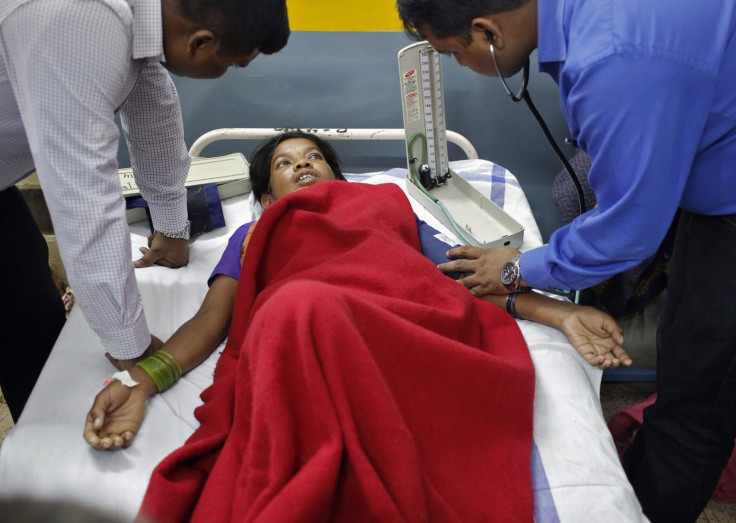India Mass Sterilisation Scandal: Authorities Say Drugs Contaminated with Rat Poison
Rat poison found in medicine linked to deaths of 15 women

Medications linked to the deaths of 15 women in a scandal in India involving botched sterilisation operations may have contained a chemical compound commonly used in rat poison, two senior health officials have said.
Preliminary tests of the antibiotic ciprofloxacin tablets that were handed out to women at the mass sterilisation in Chhattisgarh last week were found to contain zinc phosphide, Siddhartha Pardeshi, the chief administrator for the Bilaspur district, told Reuters.
At least 15 women have died, most of whom had attended a camp where mass sterilisation operations were performed at a government-run family planning camp.
Chhattisgarh health minister Amar Agarwal said authorities tested the tablets after being informed that zinc phosphide was found at the nearby factory of Mahawar Pharmaceuticals, the firm at the centre of investigations into the deaths. Police have arrested Ramesh Mahawar, the firm's managing director, and his son. Mahawar has said both are innocent.
Samples of the drugs have now been sent to laboratories in Delhi and Kolkata to verify that the tablets were contaminated, as the preliminary report suggested.
Pardeshi said the "symptoms shown by the patients conform with zinc phosphide [poisoning]".
Mahawar Pharmaceuticals had previously been barred from manufacturing medicines for 90 days back in 2012 after it was found in to have produced sub-standard drugs, but it did not lose its licence, Reuters reported.
An investigation is now under way into why the drugs were bought locally when there was enough stock of the medicine with the state's central procurement agency, Agarwal said.
"There was no incentive to procure locally so we need to investigate why it was done. This means something is wrong," he said.
More possible victims arrived at hospitals from villages on Thursday and Friday, some clutching medicines from Mahawar and complaining of vomiting, dizziness and swelling, a doctor at the district's main public hospital said on Friday.
The new patients had not attended the sterilisation camps, but had consumed the drugs separately, the doctor and another official said.
Sterilisation of women is common in India, where the government often offer incentives to families in impoverished states, to encourage women to volunteer for operations called tubectomies to help reduce the country's booming rate of population growth.
© Copyright IBTimes 2025. All rights reserved.





















